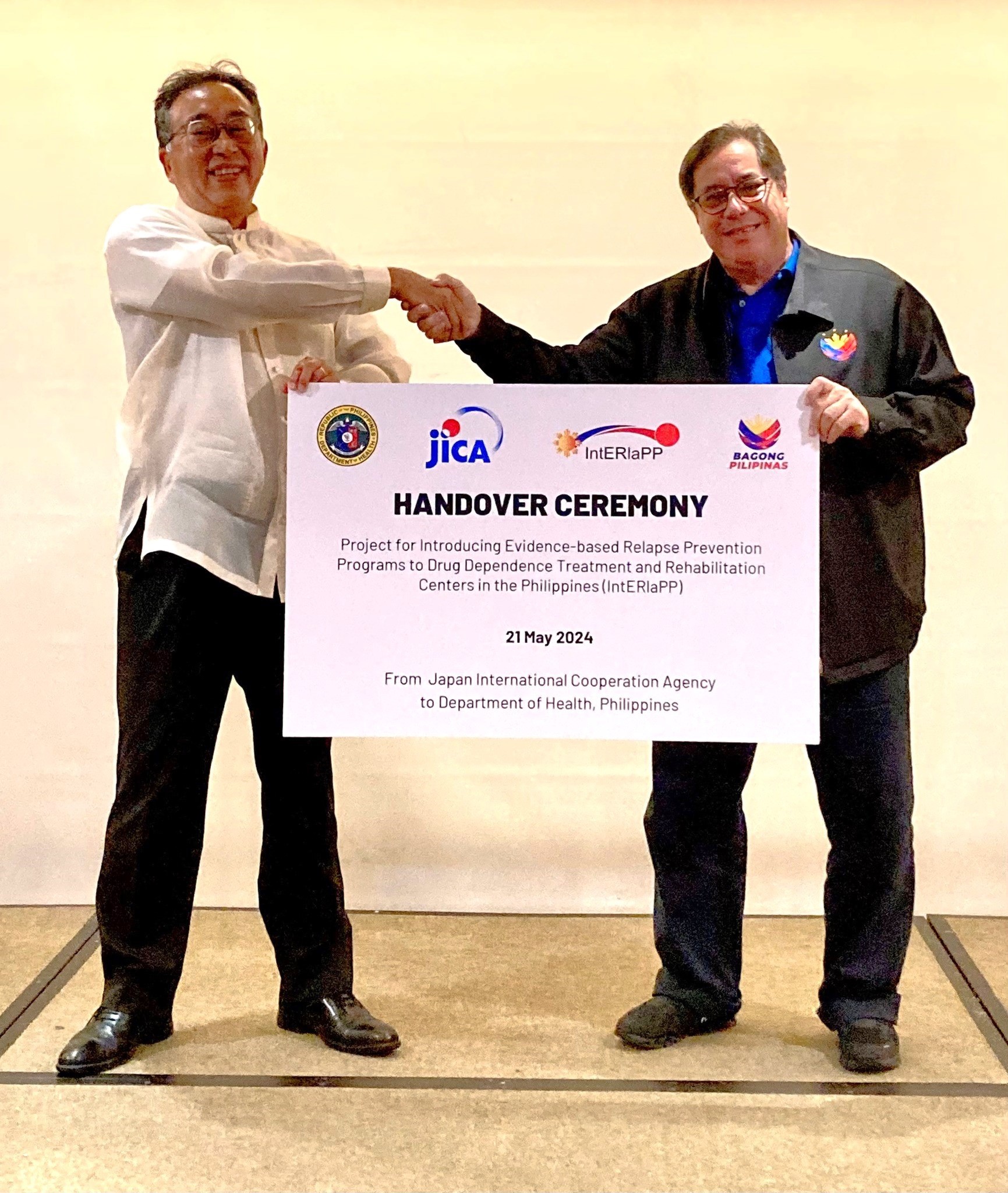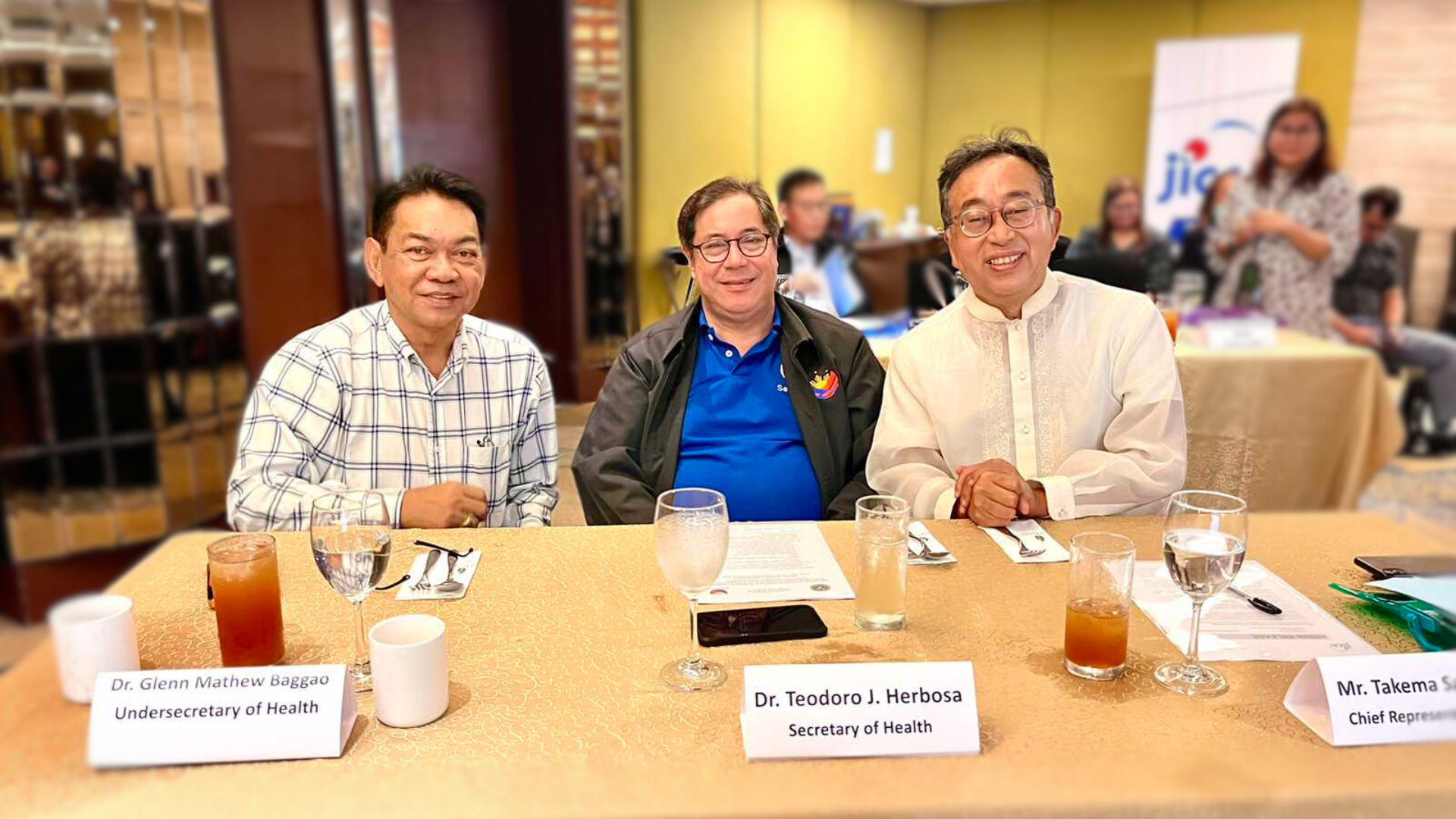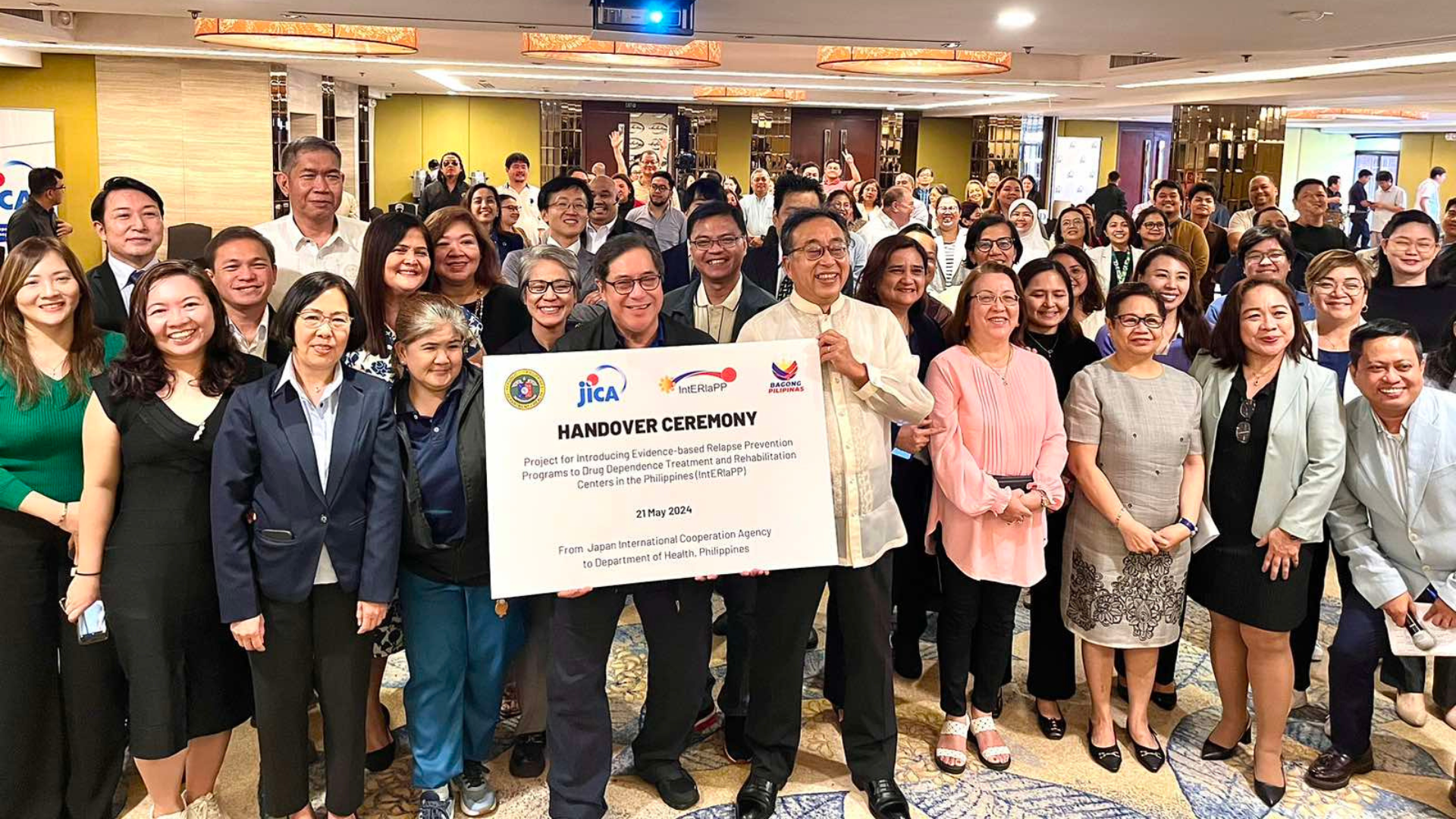JICA and DOH celebrate 7-year cooperation on drug relapse-prevention -- Success of the Project leads to a sustainable, resilient and inclusive society --
2024.05.21
The Japan International Cooperation Agency (JICA) and the Department of Health (DOH) held a final seminar in Manila on 21 May as part of the successful completion of the Project for Introducing Evidence-based Relapse Prevention Programs to Drug Dependence Treatment and Rehabilitation Centers in the Philippines (IntERlaPP), which marks a significant advancement on capacity development for modernized treatment of drug dependents towards a sustainable, resilient and inclusive society.
The joint journey of JICA and DOH began in 2017, in response to a pressing need to fortify Drug Abuse Treatment and Rehabilitation Centers (DATRCs), aiming at bolstering the capacity of DATRCs to deliver effective drug dependence treatment and rehabilitation services.
The IntERlaPP project established new evidence-based treatment models for former drug dependents: the Intensive Treatment and Rehabilitation Program for Residential Treatment and Rehabilitation Centers for Drug Dependents or INTERPRET; and the Enhanced Treatment Program for Outpatient Services for Drug Dependents or ENTREPOSE. It also developed materials and research tools for both, and published research articles about the implementation of INTERPRET in the Philippines.
The Project also offered capacity development opportunities to DATRC staff and stakeholders, including training sessions and the implementation of monitoring and evaluation activities to gauge the treatment models' effectiveness.
At the recent seminar, the successful introduction of evidence-based relapse prevention programs in 23 DOH-managed DATRCs nationwide was highlighted. The IntERlaPP project's evaluation study indicates that patients introduced to the INTERPRET program exhibited improved well-being scores, a lower risk of relapse, and heightened problem-focused coping abilities post-discharge, in comparison to those who underwent the standard therapeutic community-based Treatment as Usual (TAU) program.
JICA Chief Representative SAKAMOTO Takema said, “We are confident that the gains from the Project will be sustained, and the treatment modules will be institutionalized and incorporated in the existing rehabilitation program of the DATRCs.”
“Our commitment to Human Security, a fundamental principle of JICA's development framework, emphasizes the protection of every individual's dignity and well-being. We protect everyone from threats to their lives, livelihoods, and fundamental rights. This commitment is in harmony with the Filipino concept of 'Bayanihan', epitomizing communal unity, collaboration, and collective efforts towards the shared goal, that is a sustainable, resilient and inclusive society,” SAKAMOTO added.
“As the DOH is committed to make our services closer to our people, the department aligns our initiatives with the global direction to transform mental health care and support, so that, enabling practices are part of everyday life,” said DOH Secretary Teodoro Herbosa. “The project helps in achieving agenda 6 of our DOH 8-Point Action Agenda of “Ginhawa ng Isip at Damdamin” or Mental health and overall well-being for Filipinos,” he added.
By continuously incorporating evidence-based techniques into the country’s treatment programs, JICA and DOH strive to create permanent positive improvements to the lives of people affected by addiction.



scroll